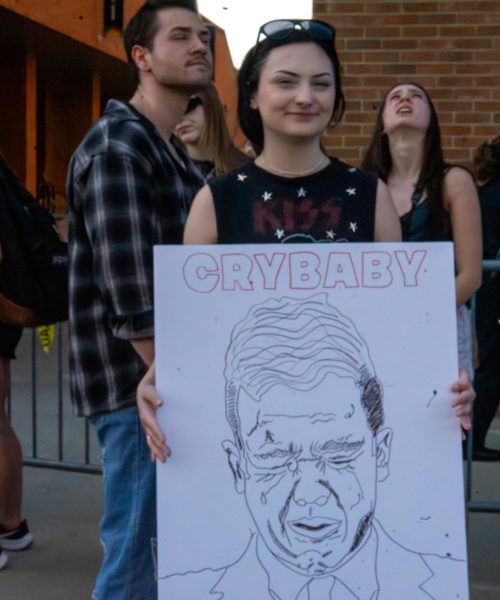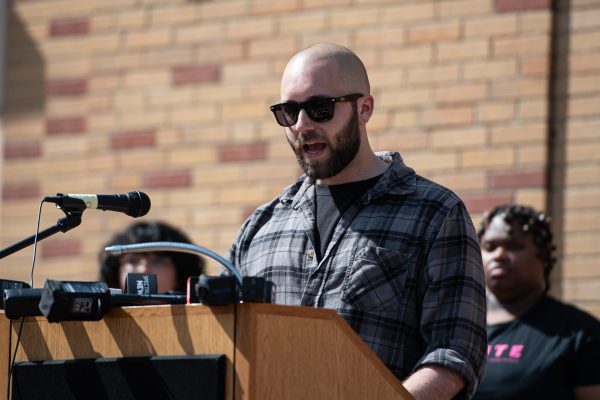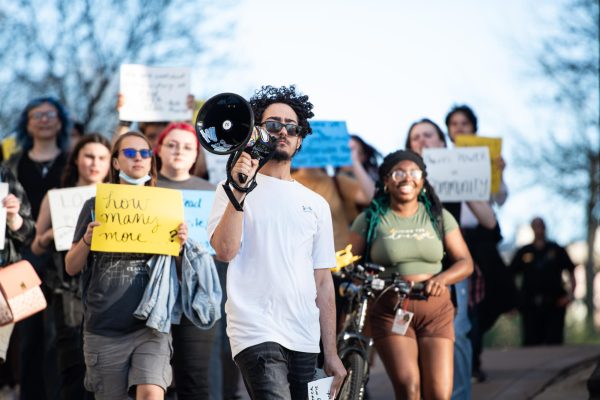Black student leaders discuss misconceptions
November 3, 2009
Drug dealers and gangsters mostly a media fallacy
African-American leaders of student organizations want people to know one thing about them: all black people are not the same.
“We can’t speak for our whole race,” KSU-NAACP President Robin Wright said. People tend to put all black people together in one group, but Wright said all black people are different and don’t fit a single description.
Once, in one of her classes a peer asked her, “How do black people feel?” Wright said she can’t answer questions like these because she is not a spokeswoman for her entire race.
Student leaders from Black United Students, Kent African Student Association, KSU-NAACP and Harambee met last week to discuss misconceptions people hold about black people.
They discussed how it is common for students who grew up in a non-diverse setting to define black people by the images they see in the media. The images seen on TV are mostly negative. It portrays black people as drug dealers, gangsters and sexually promiscuous, Wright said.
The leaders discussed Black Entertainment Television. Harambee Vice President Britany Ruby said if you go to the inner city, there probably won’t be a girl on top of a shiny car.
Because black students are aware people do hold these stereotypes about them, it leaves black students to work harder to disprove them.
KASA’s publicist, Amyobami Crawford, grew up in a primarily white area. She felt constant pressure to represent her entire race in a positive way and to dispel stereotypes. Crawford said if she felt angry one day, she knew she was sending the message that black people are angry.
“You shouldn’t categorize some person with a separate group because of things that are identical . we are all different,” Crawford said.
Wright experienced this growing up in the “hood.” Many times the image of the hood is associated with people who are sexually promiscuous, have no manners and like rap music. Wright clarifies that she fits into none of those labels.
When she came to Kent State, she encountered misconceptions. A student asked her if she got her scholarship because she was black. Wright became slightly offended by this but calmly explained to the student why it hurt her. She said she got her scholarship for her achievements.
Wright said it’s fine to be aware someone is black, but don’t attach all the stereotypes. She suggests one way students can learn about black people is to take Pan-African Studies classes.
“I think for America to get past the racist mindset, you have to stop looking at me as a black man and just look at me as man,” said BUS President Dylan Sellers.
Contact diversity reporter Kelly Petryszyn at [email protected]























